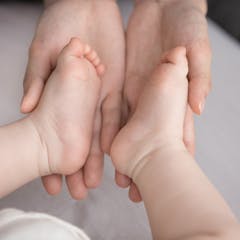
Articles sur Early childhood
Affichage de 1 à 20 de 89 articles

Universal early childhood education and care could have profound benefits for areas like Western Sydney, where despite rising education levels, women still face higher unpaid care burdens and other barriers.

People sometimes question the difference between a family meeting and, say, dinner.

Governments need to co-operate to prioritize access to high-quality child care for low-income families, and sustain not-for-profit care centres with well-paid educators.

In response to threats, we learn to avoid challenge and comply with external rules (instead of wondering how systems can be improved). We protect our feelings and restrict our thoughts to what’s safe.

Findings of a study suggest using a ‘hundreds chart’ showing numbers one through 100, beginning with one in the top-left corner, fosters children’s counting by 10s.

For over 20 years, I have researched and treated children sleep problems. The research suggests changing sleep patterns over the summer break does not have to be a problem.

Parents or caregivers who a child can return to in times of distress to receive comfort or protection provide a secure base for the child from which they feel safe to explore the world.

Early childhood education isn’t about warehousing children so adults can go to work. There is an ethical imperative to support a paradigm shift in how our society values educating young children.

A Canadian peer support program for early childhood educators is helping staff feel valued and avoid burnout.

‘Free sugars’ should only make up 10% of children’s diets. But Australian toddlers are eating 11% sugar on average.

In a systematic review of existing studies, researchers found that air pollution such as fine particulate matter can interfere with regions of the brain responsible for emotional regulation.

The impact of using electronic devices is critical during the first years of life, both visually and on the cognitive and social development of the child.

Early childhood development principals aren’t just educators: they’re also managers and business people, and those skills are critical.

Given the clear importance of language skills for lifelong outcomes, it is critical to set children up early for language success.

The impact of early childhood trauma on lifelong physical and mental health makes it urgent to invest in programs to support healthy pregnancies and stable, caring very early childhoods.

This Book Week, don’t stress about the costume and don’t worry about what the other mums or dads are sewing or buying. Costumes are fun but what matters is to let your kid read what they enjoy.

The pandemic has meant some parents have to just drop their young children at the gate and go, without seeing the classroom and talking to teachers.

Children who grow up in disadvantaged areas seem to react more strongly to facial expressions showing anger or fear. But social connections between neighbours can help.

The COVID-19 pandemic – and the isolation it brought on – deprived many babies of the stimulating experiences they need to develop. Is the damage permanent? A language specialist weighs in.

Restricting abortion access has negative effects on parents, as well as children and families, including increased poverty, unemployment, pregnancy-related deaths and higher health risks in children.
